OH GOD MAN
Nobody should live like this!
St Ann couple, five kids exist in dirt poor conditions
BY CONRAD HAMILTON Senior staff reporter [email protected]
Sunday, March 25, 2012
TO the naked eyes, the structure sitting atop a hill overlooking the small farming community of Stepney in St Ann could easily pass as a derelict building, likely to crumble any minute. But for 31-year-old Hyacinth Lewis, her common-law husband, Jonah Johnson, and their five children, a small section of the rundown building, measuring less than the size of the average bathroom, serves as the family home.
The conditions in which they live are so destitute that they go to sleep at nights without the most basic of provisions — a bed.
Two-year-old Kimone sits on step near an abandoned section of the house in Stepney, St Ann. (Photos: Garfield Robinson)
9/9
Last week, the family was visited by a team comprising new member of parliament for South West St Ann, Keith Walford, representatives of the St Ann Poor Relief Department, Food For the Poor and Social Development Commission. According to Johnson, the eldest child, 10-year-old Jevoni, is his stepson whom he treats as his own. The other children — Jonah, 8; Alesha, 7; Jordan, 4; and the youngest girl, Kimone, 2; are from the relationship with Lewis.
The member of parliament said he had received reports about the family’s living conditions, and had invited the agencies to visit the community last week Wednesday to conduct an assessment of the situation.
But on their arrival, the grown men and woman who formed the tour party were left in utter disbelief, even as the vibrant Jonah Johnson showed them around his ‘house’.
“Yea man, a Jonah mi name; is a name from the Bible”, said the 41-year-old whose hardened face bore no resemblance to his declared age.
“From mi born a never see anything like this. So where unno sleep”? asked a representative of the Poor Relief Department, as he looked at a huge hole in a section of the enclosure that gave little protection from the elements.
While he spoke, the bewildered members of the team took note of several items of clothing on the floor of the enclosure, and realised that the pieces of clothing also served as the family’s bed.
“The whole a wi hug up and sleep inna the corner when night come,” explained the short, dreadlocked Johnson, who said he didn’t benefit from formal schooling. He had to leave school when he was in grade one as his grandmother, who at the time was his caregiver, became blind.
He, however, gave credit to his partner who he said benefited from better schooling.
Describing himself as a farmer, Johnson complained that things have been extremely difficult and pointed out that the drought conditions affecting the area, as well as the difficulties in finding money to purchase seeds and fertilisers are making it even harder for him to feed his family. As he spoke, his two-year-old daughter stumbled into an empty water drum that contained a single sheet of zinc that served as a catchment for rainwater. As the child fell under the weight of the drum and piece of metal, her mother, who for most of the visit remained silent, sprung to her feet to offer comfort to the child.
From observation, four of the children seemed quite contented and showed no obvious signs of being underfed, but the youngest, Kimone, appeared weak and was at the time exhibiting flu-like symptoms.
Both parents said three of the school-aged children — Jevoni, Jonah and Alesha — attend school on a regular basis, but the elder Johnson explained that Jordan has not been going to school as he owes the basic school fee.
Johnson also acknowledged that his family had not been receiving welfare support through the State-run Programme of Advancement Through Health and Education.
“We haffi do something for them,” said Walford, even as some members of the visiting team held back tears while taking a closer look at the conditions under which the five children and two adults were living.
Asked how they were coping with the water challenges in the area, Johnson explained that the tank at the front of his house, as well as the sole water drum in his yard were empty. He added that he was relying on a neighbour’s tank for water. He disclosed, too, that the neighbour’s toilet was also used by members of his family, as his had crumbled.
Residents of the area are appealing for help for the family and are hoping that the visit will result in them getting improved housing. A few of the residents who came to the house during the visit also suggested that improved living conditions could help in ending a recent spate of disagreements between Johnson and Lewis.
Even while the Sunday Observer was on hand, both acknowledged that they were experiencing difficulties in their relationship and disclosed that Lewis had plans of moving out of the house and that she would be leaving all the children, except her first son, with Johnson.
The members of the visiting team, who attempted to resolve the dispute on location, suggested that it was almost impossible for the couple’s relationship not to be affected by the poor living conditions.
In a subsequent discussion with the Sunday Observer, Deputy Inspector of Poor for St Ann Astley Dawson said the Poor Relief Department was arranging counselling for Lewis and Johnson. Dawson also disclosed that plans were underway to place the family on the Government’s poor relief programme, which would result in them receiving a monthly stipend of $2,000.
While suggesting that a house could be made available to the family, one representative of Food For the Poor explained that due diligence will have to be done to, among other things, confirm the ownership of the land on which a house could be constructed.
The family’s living conditions bring into sharp focus the challenge Jamaica faces to meet one of the United Nations Millennium Development Goals (MDGs), that of cutting poverty in half by 2015.
The United Nations arm in Jamaica pointed to the Jamaica Survey of Living Conditions’ 2009 report which stated that the population living in poverty decreased from 28.4 per cent in 1990 to 9.9 per cent in 2007. “However, it subsequently increased in recent years, from 12.3 per cent in 2008 to 16.5 per cent in 2009”.
The survey showed that decline in the rate of poverty has been slowest in the rural areas, which in 2009 had the highest prevalence of poverty of 22.5 per cent, compared to 12.8 per cent in the Kingston Metropolitan Area and 10.2 per cent in other towns, with slightly more males than females existing in poverty.
Read more: http://www.jamaicaobserver.com/news/Nobody-should-live-like-this-_11112889#ixzz1q9TOn2rA
79 Responses to OH GOD MAN
****RULES**** 1. Debates and rebuttals are allowed but disrespectful curse-outs will prompt immediate BAN 2. Children are never to be discussed in a negative way 3. Personal information eg. workplace, status, home address are never to be posted in comments. 4. All are welcome but please exercise discretion when posting your comments , do not say anything about someone you wouldnt like to be said about you. 5. Do not deliberately LIE on someone here or send in any information based on your own personal vendetta. 6. If your picture was taken from a prio site eg. fimiyaad etc and posted on JMG, you cannot request its removal. 7. If you dont like this forum, please do not whine and wear us out, do yourself the favor of closing the screen- Thanks! . To send in a story send your email to :- [email protected]
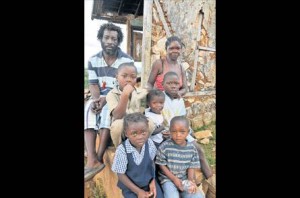
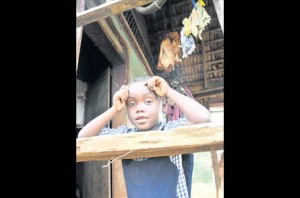
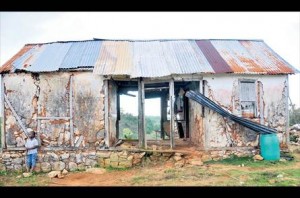
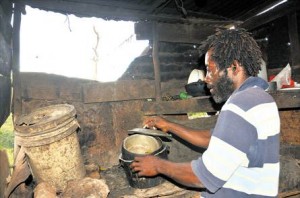
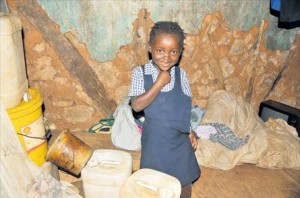
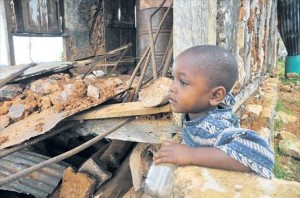
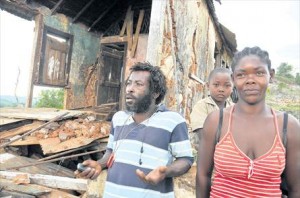
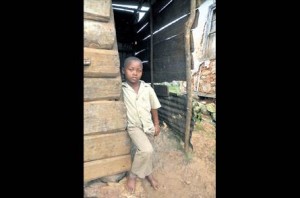
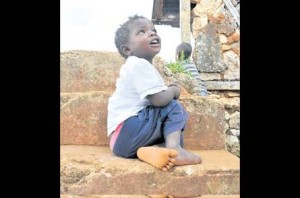
Leave a Reply